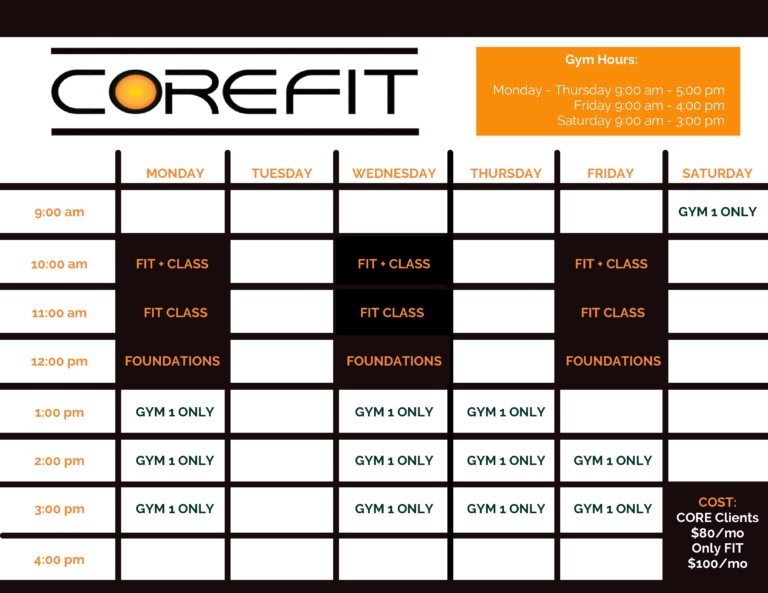Lead a more active lifestyle.
According to the US Department of Health and Human Services, adults with disabilities should strive to get at least 150 minutes a week of moderate-intensity, or 75 minutes a week of vigorous-intensity, aerobic activity, or an equivalent combination of moderate- and vigorous-intensity aerobic activity. Aerobic activity should be performed in episodes of at least 10 minutes, and preferably, it should be spread throughout the week. Adults with disabilities, who are able to, should also do muscle-strengthening activities of moderate or high intensity that involve all major muscle groups on 2 or more days a week.
To achieve this, CORE offers the FIT Program to make exercise a part of your routine and encourage more movement to lead a healthier lifestyle.
FIT Program
CORE FIT is a membership-style Adaptive Fitness Program that offers high intensity, coach-led classes with a focus on strength and cardio for all ages and abilities. FIT Program participants also have access to components of the CORE gym and include use of the Restorative Therapies RT300 Leg Cycle for individual workouts.* By using the RT300 Leg Cycle two to three times per week, research has shown it increases cardiac health, reduces muscle atrophy, spasticity/tone, and helps improve resting metabolic rate to maintain a healthy weight. This combined with a regular standing program will assist with improving bone density and muscular health.
Highlights:
- Offering three levels of classes, three times per week for quadriplegic, paraplegic, and ambulatory athletes
- The 60 minute high-intensity workouts can be performed from the wheelchair or with assistive devices, as needed
- The CORE FIT Workouts are constantly varied to challenge you in different ways
- Utilize adaptive cardio equipment such as the Endless Rope, Concept 2 Rowing Machines, and SkiErg
- Participate in yearly Adaptive Fitness Competitions for a fun boost and to test your skills!
Class Schedule 2022:

*Gym access includes: Smith Machine with cables, EasyStand Standing Frame, and free weights and cardio equipment, when not in use. To begin using the RT300 Leg Cycle, participants must schedule an FES Evaluation first. Also, participants are responsible for the cost of their electrodes.
Supplemental Information
Activity and Fitness in Spinal Cord Injury: Review and Update

